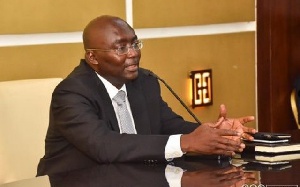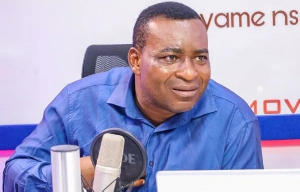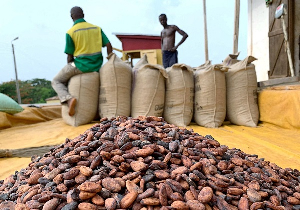Member of Parliament (MP) for Ho Central Constituency in the Volta Region, and a member of the Finance Committee of Parliament, Mr. Benjamin Komla Kpodo, has called on Civil Society Organisations (CSOs) and notable Economists to remain and wait till the Finance Ministry bring to Parliament details of the $15 billion Chinese loan agreement.
According to the Ho Central MP, as far as he is concerned, the state has not contracted any loan from China. He explained that they have only heard in the news that the Vice President Dr Mahamudu Bawumia announced after his four-day trip to China recently that they have signed a Memoranda of Understanding (MoU) for $15 billion loan package from the Chinese government.
Speaking in an exclusive interview with Today, Mr Kpodo opined that the concerns being raised about the loan agreement by some section of the public is too early.
“Let us all wait patiently for the Minister of Finance to bring whatever agreement they have before the House. As things stand now it is only a MoU the Vice President have gone to sign. If a loan agreement has been signed to that effect, it will surely come to Parliament,” he added.
Meanwhile, the Minority MPs have promised to launch a vigorous scrutiny of the agreement when details of the specific projects the funds intend to finance get to the House.
It would be recalled that the Vice President Dr Mahamudu Bawumia announced after his four-day trip to China recently that they have signed a Memoranda of Understanding (MoU) for $15 billion loan package from the Chinese government.
Dr. Bawumia also explained that the ‘loan agreement’ with the Asian country is not based on the traditional model of borrowing and aid.
The new model, according to him, is based on the bargaining power of the country’s natural resources such as the 2.8 billion metric tonnes of iron ore deposits, 960 million metric tonnes of bauxite, 413 million metric tonnes of manganese as well as the huge gold reserves and cocoa.
General News of Wednesday, 5 July 2017
Source: todaygh.com













